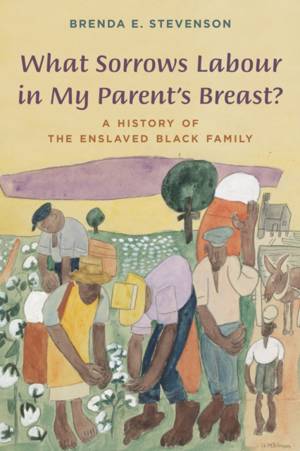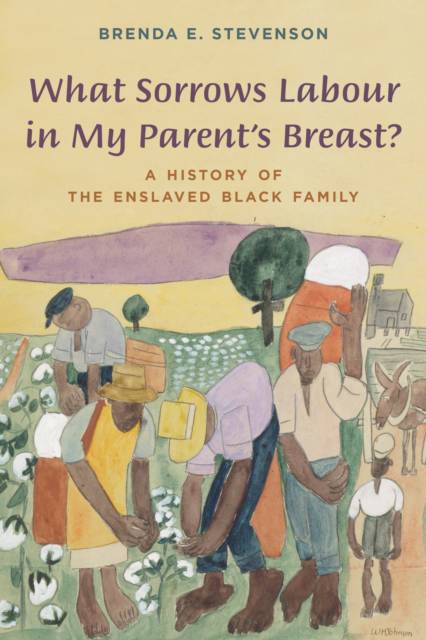
- Afhalen na 1 uur in een winkel met voorraad
- Gratis thuislevering in België vanaf € 30
- Ruim aanbod met 7 miljoen producten
- Afhalen na 1 uur in een winkel met voorraad
- Gratis thuislevering in België vanaf € 30
- Ruim aanbod met 7 miljoen producten
Zoeken
What Sorrows Labour in My Parent's Breast?
A History of the Enslaved Black Family
Brenda E Stevenson
Hardcover | Engels
€ 68,95
+ 137 punten
Omschrijving
In What Sorrows Labour in My Parents' Breast?, Brenda Stevenson provides a long overdue concise history to help the reader understand this vitally important African American institution as it evolved and survived under the extreme opposition that the institution of slavery imposed.
Specificaties
Betrokkenen
- Auteur(s):
- Uitgeverij:
Inhoud
- Aantal bladzijden:
- 440
- Taal:
- Engels
Eigenschappen
- Productcode (EAN):
- 9781442252165
- Verschijningsdatum:
- 21/04/2023
- Uitvoering:
- Hardcover
- Formaat:
- Genaaid
- Afmetingen:
- 154 mm x 230 mm
- Gewicht:
- 657 g

Alleen bij Standaard Boekhandel
+ 137 punten op je klantenkaart van Standaard Boekhandel
Beoordelingen
We publiceren alleen reviews die voldoen aan de voorwaarden voor reviews. Bekijk onze voorwaarden voor reviews.








